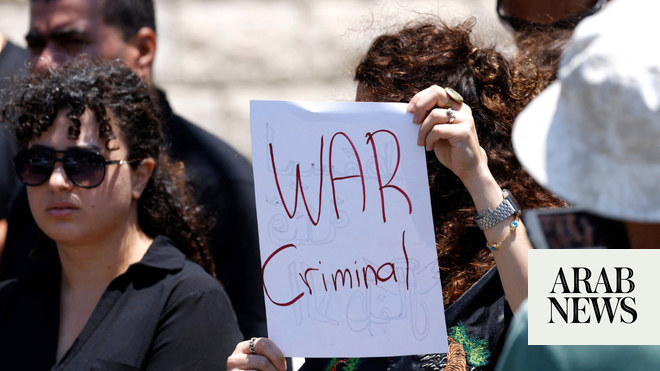Could the tragedy of the Majdal Shams football field spark an all-out war between Israel and Hezbollah?
Beirut/Dubai: Israel's security cabinet has given permission to Prime Minister Benjamin Netanyahu and Defense Minister Yoav Galant to cancel Saturday's rocket attack on a soccer field in the Druze Arab town in the Israeli-occupied Golan Heights, which killed two people. It became 12 children, to retaliate.
According to the Israeli military, Majdal Shams was hit by an Iranian-made Falak-1 rocket with a 50-kilogram warhead fired by the Iranian-backed Lebanese Hezbollah militia — a conclusion supported by the United States.
Hezbollah, which has regularly exchanged fire with Israel since the Gaza war began on October 7, said it had “nothing to do” with the incident, but confirmed that on Saturday it had fired one of the rockets at an Israeli military target in The area has shot. Golan
A statement said: “Islamic resistance has absolutely nothing to do with this incident, and we categorically deny all false claims in this regard, and instead blame Israel's failed interceptor missile for the loss of life.”
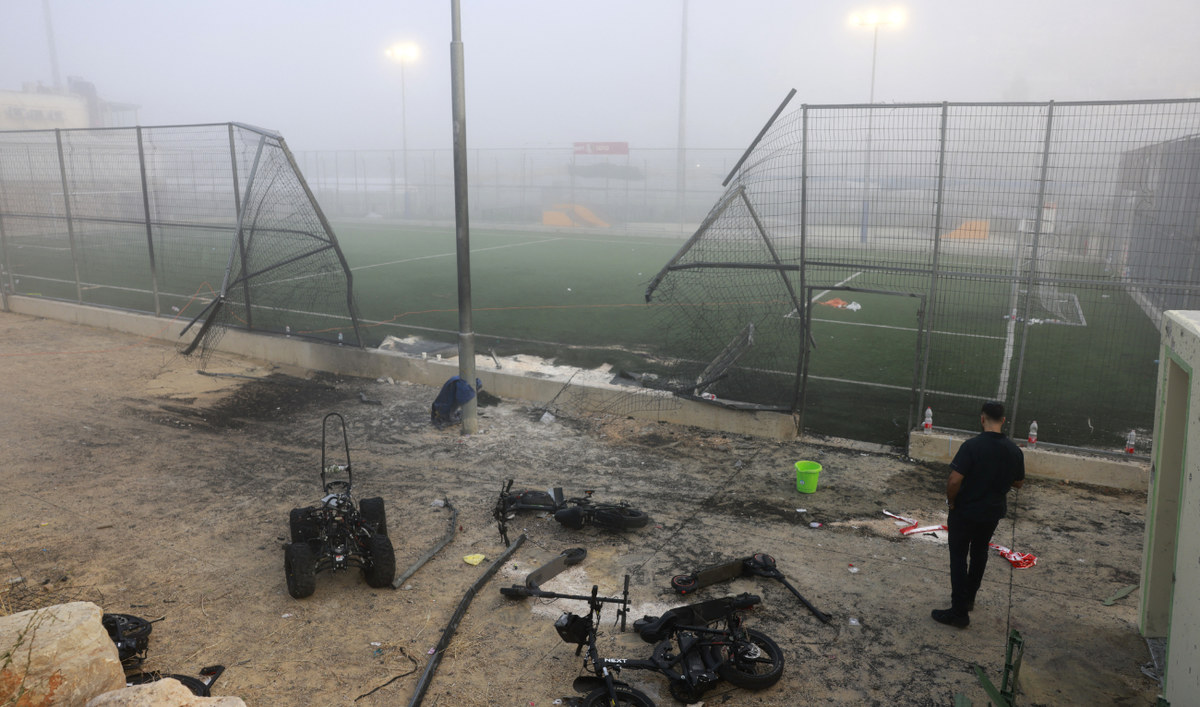
A man stands near a damaged gate surrounding a soccer field after a reported attack from Lebanon in the village of Majdal Shams in the Israeli-annexed Golan region on July 28, 2024. (AFP)
The Majdal Shams incident followed an Israeli strike that killed four Hezbollah fighters in southern Lebanon and prompted the militants to launch retaliatory rocket attacks on the Golan and northern Israel.
Mohand Hij Ali, a senior fellow at the Carnegie Middle East Center in Beirut, said in a thread posted on the X social network that one possible scenario is that Hezbollah or one of its allies, such as al-Fajr forces and al-Qassam brigades. He fired the rockets by mistake.
Regardless of what happened, “in all cases, the massacre provided an excuse for the Netanyahu government to respond with force,” he said.
Netanyahu, who had returned early from his trip to America, immediately attended a security cabinet meeting and told local media that “Hezbollah will pay a heavy price for this attack,” “a price it has not paid before.”
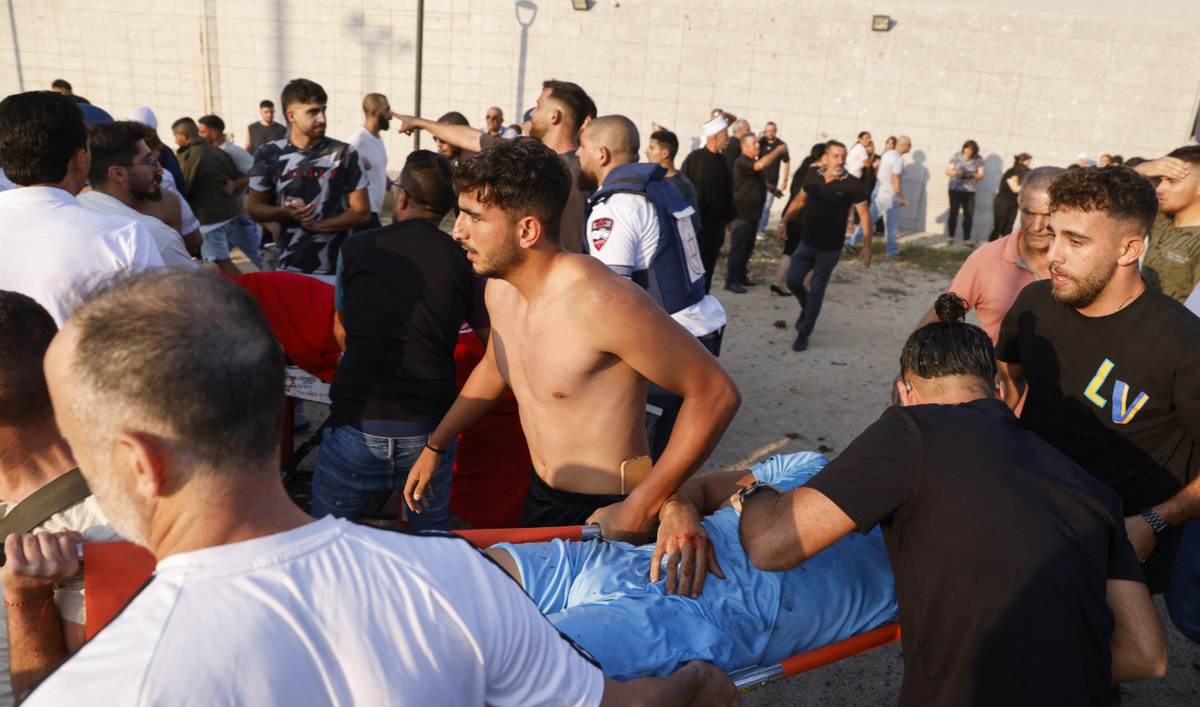
Israeli security forces and medics evacuate the wounded along with local residents in the village of Majdal Shams in the Israeli-annexed Golan region on July 27, 2024. (AFP)
His office announced after this meeting: Cabinet members allowed the Prime Minister and the Minister of Defense to decide on how and when to respond to the Hezbollah terrorist organization.
On Sunday, during a visit to Majdal Shams, Gallant vowed to “strike the enemy hard,” raising concerns about the escalation of the war in Gaza. Meanwhile, Iran warned Israel that any new military “adventurism” in Lebanon could lead to “unforeseen consequences.”
The Israeli military called the attack “the deadliest attack on Israeli civilians” since the exchange of fire on the Lebanese border began in October. The attack has fueled fears that what have so far been relatively contained hostilities could escalate into an all-out war.
In fact, observers of the region fear that any retaliatory action against the attack carried out by Israel will even bring the Iranian supporters of Hezbollah into the fray.
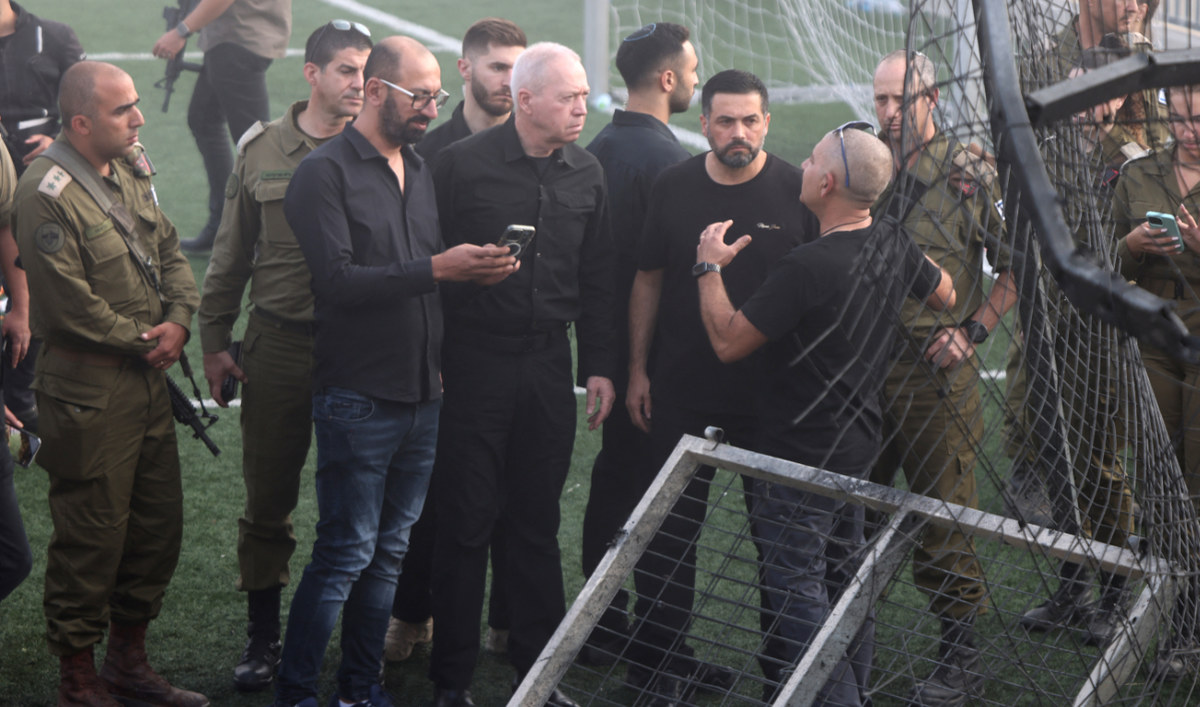
Israeli Defense Minister Yoav Gallant (C) visits the site where a reported attack from Lebanon hit the village of Majdal Shams in the Israeli-annexed Golan on July 28, 2024. (AFP)
Meir Javadanfar, an Iranian-born commentator and Middle East academic in Israel, said after the missile attack: “Israel's strong response against Hezbollah could provoke another direct retaliation from Iran.”
As with previous tense incidents between Israel and its Iranian-backed foes since the start of the Gaza war, the retaliation has been relatively minor and carefully orchestrated to maintain a deterrent effect without sparking a major conflict.
However, Firas Maksad, a senior fellow at the Washington, DC-based Middle East Institute, is under no illusions about the severity of the situation. “The risk of miscalculation has never been greater,” he said.
A wider Israel-Lebanon war has been brewing for a long time. “A 'positive' scenario would see a future invasion of what are now largely uninhabited areas of both countries.”
that inNo
- 12 Children and teenagers were killed in a rocket attack on Majdal Shams in the occupied Golan Heights by Israel on Saturday.
- 527 People killed on the Lebanese side of the border since Israeli-Hezbollah exchanges began in October, including at least 104 civilians.
- 46 According to the Israeli military, those killed on the Israeli side – including in the Golan Heights – included 22 soldiers and 24 civilians.
Although a missile attack and subsequent Israeli retaliation could create the conditions for a rapid escalation, Hij Ali of the Carnegie Middle East Center believes that Hezbollah is still keen to avoid an all-out war.
He said: “It remains that Hezbollah wants to avoid war and will show restraint after Israel's response.” “Even if Hezbollah crosses a red line, Hezbollah is likely to choose a symbolic response.”
However, “the Majdal Shams attack highlights the challenge of maintaining a geographically limited conflict for several months. “Mistakes or miscalculations are bound to happen and can turn into conflict regardless of the desire of the various parties to avoid it.”
Israel carried out its threat of retaliation by attacking the cities of Abbasiya and Borj Shamali in southern Lebanon early Sunday morning. Both cities, adjacent to the city of Tire, suffered significant material losses. There were more attacks on Tire Harf and Khayyam.
There were also attacks in Taraya in the center of Bekaa where two rockets destroyed a residential building. No casualties were reported.

Smoke rises from a site targeted by the Israeli army in the border village of Kafr Kila in southern Lebanon on July 29, 2024. (AFP)
Kim Ghattas, a Beirut-based Lebanese journalist writing for the Atlantic, wrote in X: “Nobody wants a big war.
“Israel will be looking to target key targets either with high visibility or in a night of heavy attack or a week of operations. The key is avoiding population centers/civilian casualties and not triggering a major Hezbollah response and wider war.
This is very difficult to calibrate. High stakes for Lebanon, the region and the Biden administration. Israel has so far not requested the evacuation of other settlements in northern Israel, indicating that they believe Hezbollah's response will be measured.
“All of this requires open communication channels to ensure that no one misreads the other party's movements. It's like a dance of death, with very real consequences for civilians everywhere.”
As tensions escalated over the weekend, several Western countries issued statements urging their citizens to avoid unnecessary travel to Lebanon and Israel. Meanwhile, several airlines have suspended flights to and from Beirut.
Since the attack, there has been a lot of diplomatic activity to contain the Israeli response.
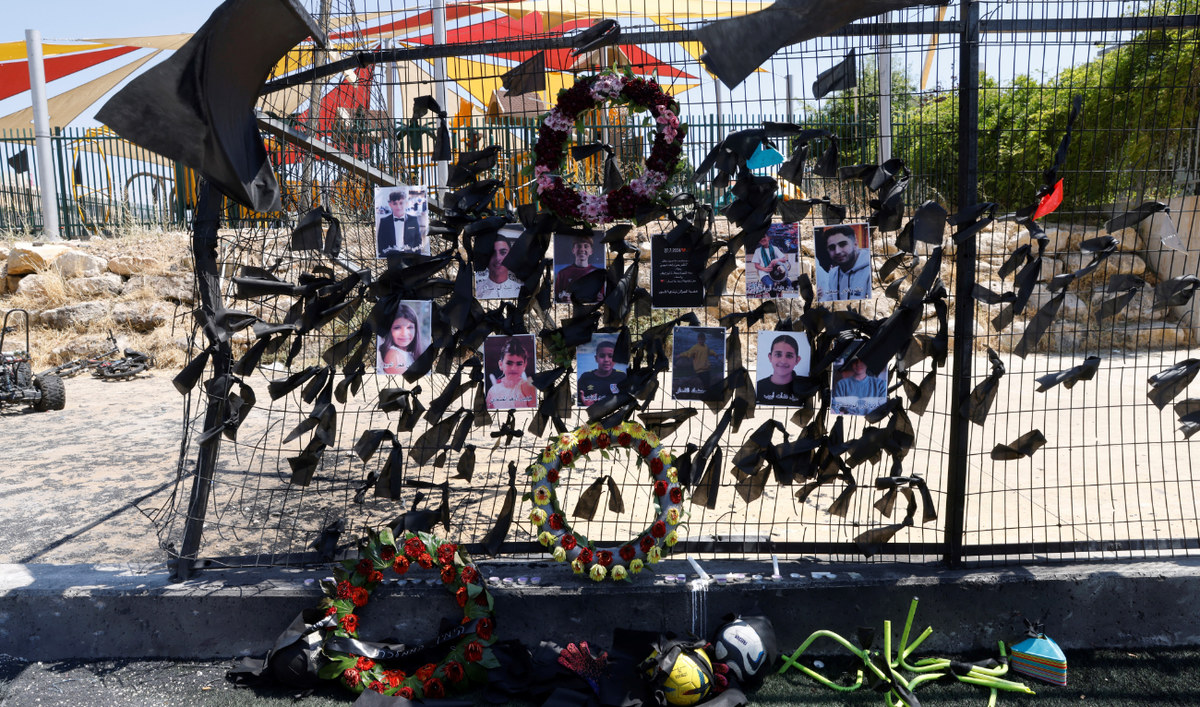
Portraits of children and teenagers who were killed hang on the fence of a soccer stadium in the village of Majdal Shams in Israel's annexed Golan on July 29, 2024. (AFP)
The Lebanese government condemned all acts of violence and attacks against civilians. This organization stated in a statement: Targeting civilians is a clear violation of international laws and against the principles of humanity, and called for an immediate cessation of conflicts on all fronts.
Lebanese Foreign Minister Abdallah Bou Habib said late Sunday in an interview with the local Al-Jadeed channel that the United States, France and others are working to contain the escalation.
He said: “Since the beginning of the war, Hezbollah has targeted military sites, not civilian sites” and added: “I did not believe that it carried out this attack on Majdal Shams.”
This may have been done by other organizations, Israel's mistake or even Hezbollah's mistake. I do not know. We need an international investigation to determine the truth of the matter.”
Lebanese Prime Minister Najib Mikati also said in a statement on Sunday: “Negotiations with international, European and Arab parties continue to protect Lebanon and prevent dangers.”
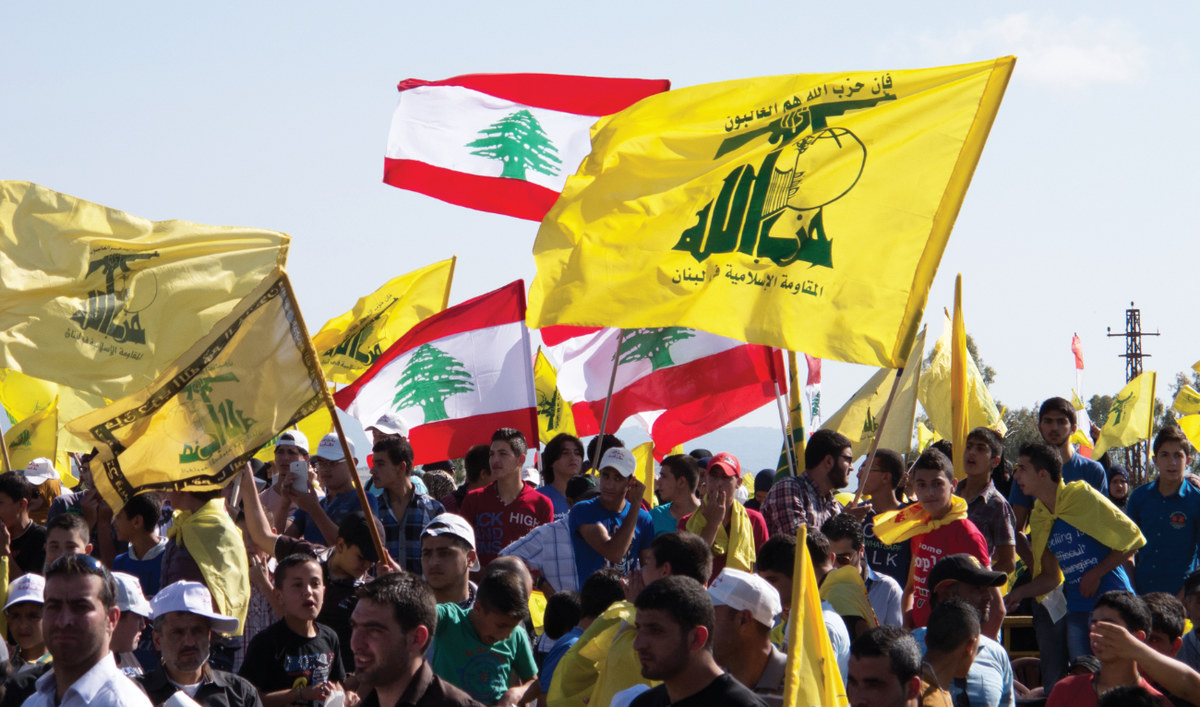
Hezbollah said it had “nothing to do” with the Majdal Shams attack, but confirmed that it had fired one such missile at an Israeli military target in the Golan on Saturday. (Shutterstock)
Adrienne Watson, a spokeswoman for the US National Security Council, said Washington had been “in continuous dialogue” with Israel and Lebanon after the attack.
UN Secretary-General Antonio Guterres condemned the missile attack and called on all parties to exercise maximum restraint.
In a joint statement, Jeannine Hennis-Plaschart, UN Special Coordinator for Lebanon, and Major General Aroldo Lazaro, head of the UN Interim Force in Lebanon, stressed that “civilians must be protected at all times.”
They urged the parties to exercise maximum restraint and end the intense and continuous exchange of fire that could ignite a wider conflict that would plunge the entire region into an unimaginable disaster.
Hennis-Plaschart said he had been in contact with Nabih Berri, the head of the Lebanese parliament, who is considered one of the most important channels of communication with Hezbollah.
In his statement, Barry said: “Lebanon and its resistance (Hezbollah) are committed to Resolution 1701 and the rules of engagement for not targeting civilians and emphasized that “the resistance's denial of what happened in Majdal Shams firmly confirms this commitment and it.” . Lebanon's lack of responsibility for what happened.
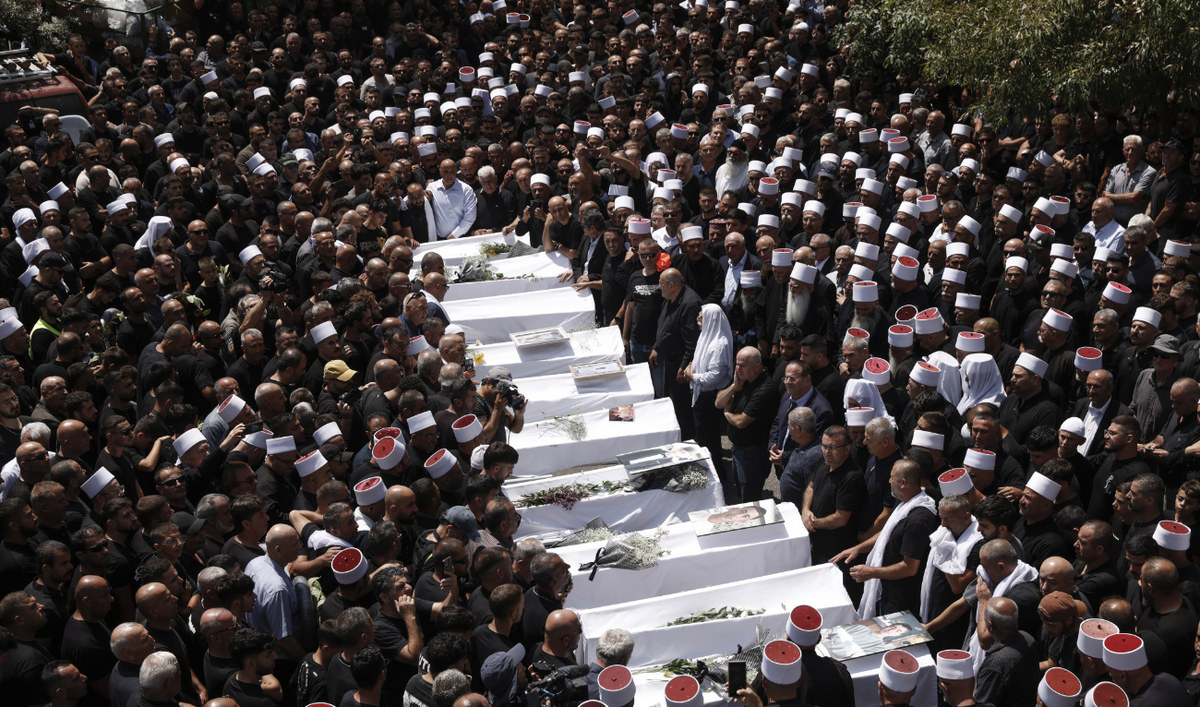
Mourners surround the coffins of 10 of the 12 people killed in Majdal Shams during a mass funeral in the Israeli-annexed Golan on July 28, 2024. (AFP)
Walid Jumblatt, a former influential leader of the Druze-based Progressive Socialist Party, said he received a phone call Saturday night from US President Joe Biden's special envoy Amos Hochstein to discuss the incident.
Reemphasizing the avoidance of civilian casualties, Jumblatt asked both sides to maintain their restraint and calmness. He said in a statement: Targeting civilians, whether in occupied Palestine, occupied Golan, or southern Lebanon, wherever it happens, is unacceptable.
The fact that those killed in the Majdal Shams attack were not Israelis, but members of the Druze community, is a complicating factor for Hezbollah, which is seeking to improve relations with the religious sect.
Many residents of Majdal Shams have refused Israeli citizenship since Israel captured the Golan Heights from Syria in 1967.
After conquering about two-thirds of the Golan Heights during the 1967 Arab-Israeli War, Israel annexed the area in 1981, a move not recognized by the international community except the United States as of 2019.
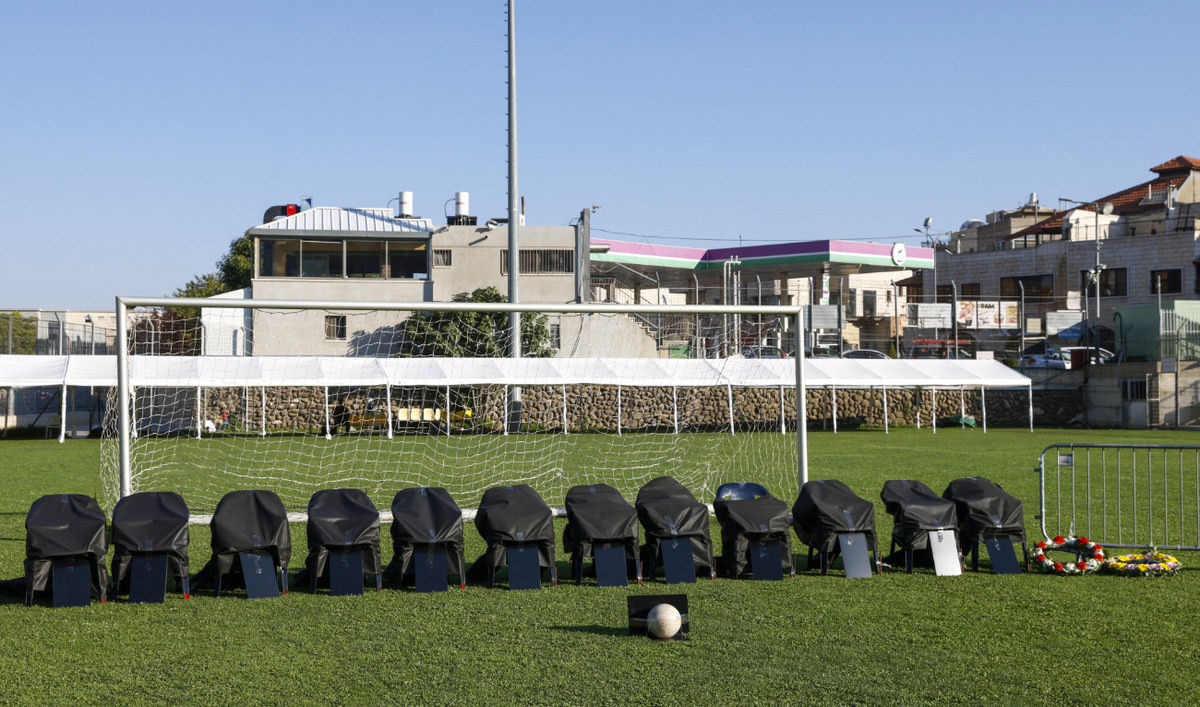
Chairs draped in black representing 12 members of the Druze community who were killed in a rocket attack from Lebanon are lined up at the soccer field where the attack took place during their funeral in Majdal Shams on July 28, 2024. (AFP)
The Druze in the Golan are mainly identified as Syrians, while they have residency status in Israel rather than citizenship. Members of the Druze community in Syria have resisted the Syrian regime of Bashar al-Assad, who is supported by Hezbollah.
Michael A. “The cause of the war” is particularly important to Hezbollah, said Horowitz, a geopolitical analyst and head of the Le Beck International analyst team.
If war breaks out as a result of an attack on Majdal Shams, they will have to justify their actions to the Lebanese (who will suffer massive destruction by Israel), and this will be especially painful for them.
Hezbollah wants to be seen as the defender of Lebanon. If a war breaks out over an attack that kills residents of a city (who) don't even know they're Israeli, that would be especially bad for the group.
“This explains Hezbollah's denial, at the top of sectarian dynamics. The narrative of how the war started is vital for this group.

